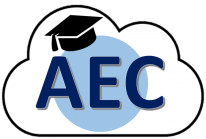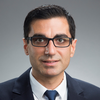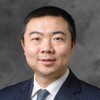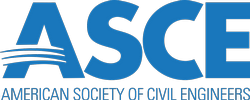Special Collection - NSF Workshop


Next Generation Learning-Centered Environment for
Architecture, Engineering, and Construction (AEC) Education
Main menu:
Special Collection on the Role of Emerging Technologies in AEC Education
Guest Editors:
 Dr. Amir Behzadan
Dr. Amir BehzadanTexas A&M University
 Dr. Yelda Turkan
Dr. Yelda TurkanOregon State University

Dr. Jiansong Zhang
Purdue University
 Dr. Amirhosein Jafari
Dr. Amirhosein JafariLouisiana State University
The Full paper submission deadline is extended for two weeks! Please submit your abstract by August 31, 2022.
Aims & Scope:
While the COVID-19 pandemic has forever changed our daily lives, it has also expedited the pace of technology development and integration in many fields including the architecture, engineering, and construction (AEC) industries. Moving into the post-pandemic era, it is critical to understand the role of emerging technologies in shaping the learning environment for AEC education. Anecdotal evidence in AEC education already exists with respect to pedagogical improvements made by individual technologies such as immersive computing, ubiquitous sensing, artificial intelligence (AI), robotics, big data, cyberinfrastructure, and photogrammetry. However, the human-technology frontier in AEC workplaces is destined to change fundamentally in the coming years. This Special Collection aims to advance knowledge in the application of emerging technologies in AEC education, by encouraging contributions to new concepts, methodologies, and best practices, as well as experiments and case studies for current and future integration of technologies in AEC education. Topics of interest include, but are not limited to:
- The role of emerging technologies in minimizing the gaps between AEC curricula and industry practices,
- The use of emerging technologies (e.g., sensing, analytics, visualization, information technology, modeling, simulation) to form disruptive forces to improve the learning environment,
- Pedagogical strategies enabled by emerging technologies to enhance multidisciplinary teamwork and communication skills in AEC education,
- Challenges related to digital inequity in AEC education and the use of technologies to address them, and
- Visionary approaches and methods for future AEC work and education.
 Venues:
Venues:Submissions will go through a rigorous peer-review process. Accepted papers will be published by the American Society of Civil Engineers (ASCE) either in the Journal of Computing in Civil Engineering (JCCE) or the Journal of Civil Engineering Education (JCEE), based on the topic and scope of the article.
Type of Papers:
We accept two types of articles: Technical Papers and Case Studies. Technical Papers should report results of thought-provoking studies that contribute to the planning, analysis, design, construction, management, or maintenance of civil engineering works (JCCE) or describe educational research efforts related to civil engineering and include traditional research, case study research, educational intervention papers, and systematic literature reviews that seek to expand the field of knowledge (JCEE). Case Studies describe a method or application that illustrates a new or existing principle or present an innovative way to solve a problem (JCCE) or describes newly established or innovative educational practices or tools that are based upon Evidence-Based Instructional Practices from the engineering education and education literature, with the focus of sharing the work as an example for others to adopt and/or test for themselves (JCEE). We encourage you to review the requirements for a case study on the JCEE author main page.
Submission Instructions:
Authors interested in submitting manuscripts should submit an extended abstract highlighting the title and type of the paper, authors and their affiliations, and a summary of their proposed contributions (maximum 800 words), using the submission link. For full consideration for this Special Collection, authors should submit extended abstracts by February 15, 2022. The Guest Editors will review submitted proposals and contact authors with invitations to submit full-length articles soon thereafter. It is expected that the invited full-length articles should be submitted by August 1, 2022.
The Full paper submission deadline is extended for two weeks! Please submit your abstract by August 31, 2022.